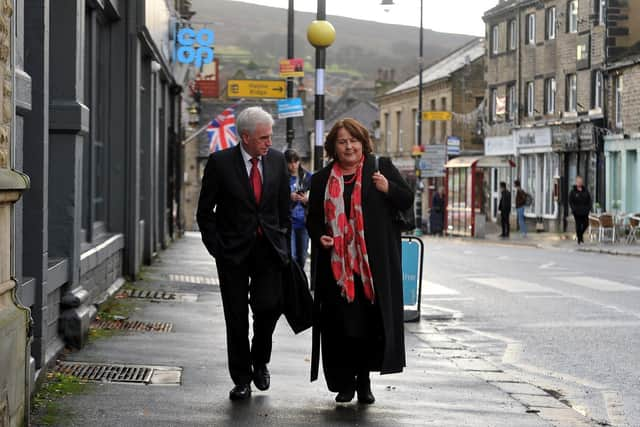John McDonnell says Labour's free broadband for all policy originated in Yorkshire and is now 'exactly what the country needs'
Mr McDonnell said the promise to give every home and business in the UK free full-fibre broadband by 2030 if it won the election was now seen by many as "real common sense" in the aftermath of the pandemic.
And speaking ahead of an online event about how Labour policies could benefit the West Yorkshire constituency of Colne Valley, he revealed that the idea for the policy came from a meeting with businesses in the area with then-MP Thelma Walker.


Advertisement
Hide AdAdvertisement
Hide AdHe said: "I came and spoke to a whole range of largely small businesses and we went through the menu of policies about infrastructure, investment, the need for skills training, support for businesses development of co-operatives etc.
"It was in Thelma's constituency that someone said the best thing that you can do for us is get us a decent broadband service.
"And actually we took that idea away and that's how the public broadband system policy proposal came up. We actually took that away and said OK we'll work that one up."
He added: "The point that people made was right. They said start with the least and worst connected areas first.
Advertisement
Hide AdAdvertisement
Hide Ad"The cities at the moment may not be well served but outside of the big cities, it's almost impossible really or very difficult to run an effective business when you've got poor broadband."
The policy unveiled in November 2019 included nationalising part of BT to deliver the idea and introduce a tax on tech giants to help pay for it.
Mr McDonnell said Labour would add an extra £15bn to the government's existing £5bn broadband strategy, with the money to come from the party's proposed Green Transformation Fund.
A new entity, British Broadband, would run the network, with maintenance - estimated to cost £230m a year - to be covered by the new tax on companies such as Apple and Google.
Advertisement
Hide AdAdvertisement
Hide AdThe policy, described as "a crackpot scheme" at the time by Boris Johnson, was later criticised as an example of the kind of apparently unrealistic solutions that turned off the electorate.
Labour suffered major losses across the North, including Thelma Walker losing her seat in Colne Valley, as the Conservatives won a commanding majority.
But Mr McDonnell said it was suggested at the time that universal broadband could be vital for education, something he said that was "almost prophetic" now that the majority of children are learning online.
He said: "It was criticised at the time actually when we launched it in opinion polling it was quite well received, but it was criticised after the General Election.
Advertisement
Hide AdAdvertisement
Hide Ad"But now it's exactly what people need in terms of local industry and local small businesses in particular but also for education and connectivity.
"It's interesting how many people now refer to it as real common sense."
On February 27 Mr McDonnell is hosting a 'Claim the Future' event online where he will bring community activists together to set policy priorities for Colne Valley post-Covid, and to plan and organise future campaigning.
Comment Guidelines
National World encourages reader discussion on our stories. User feedback, insights and back-and-forth exchanges add a rich layer of context to reporting. Please review our Community Guidelines before commenting.